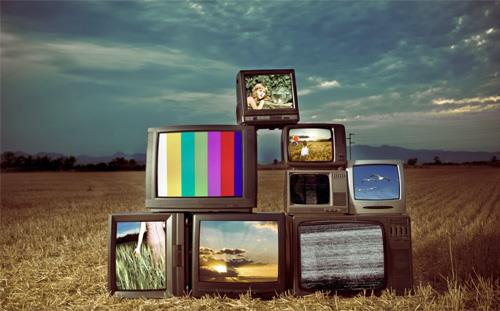
It has been a long time since I watched a television news program. In my opinion, these dwindling dinosaurs are on the same path to extinction as watches you have to wind, Sears stores, and places where you pay to watch movies while eating food for which you also have to pay.
How soon these anachronisms will jump into the tar pits in which newspapers now soak and sink isn't predictable. Just inevitable.
Returning to the first sentence of this low-power rant, however, let me — a person who once earned a good portion of his not-so-good salary watching, absorbing and critiquing local and national newscasts — explain.
Newscasts take their hopelessly passive viewers hostage, put them on a train, strap them into a seat, and determine what they "see out the window" and how long they can look.
Whether it's a half-hour network production or a local station's hours-long broadcast designed to package commercials purchased by 95% percent of the country's car dealers, a viewer either has the choice of remaining a viewer in hopes of learning something really relevant or turning off and declaring independence. Are you interested in the school board scandal that is unfolding on the other side of the station's broadcast area? The arrest that took place four counties away? Or the cute story about the fellow who made a memorial statue to Euell Gibbons out of pinecones?
Yes or no, it's an all-or-nothing menu set in front of you. You want some wheat? There’s no à la carte. The chaff is put on a plate in front of you, too.
Same thing, on a slightly higher level, applies to national news programs: You either keep watching through it all or do more independent things with your half-hour.
Twenty years ago, this wasn't the case. What was the meteor that crashed to the ground and caused this extinction-in-process? The internet, of course — the same flaming rock that is eliminating department stores and shopping malls, dictionaries and encyclopedias, face-to-face conversations, and much of the U.S. Postal Service.
It has become the key that unlocks me from captive watching. I go to the local stations' sites and to the ones the national news giants run when I choose to. I see a headline that means something to me? I read the story. All or part of it; it's up to me. And I have the luxury of ignoring whatever I want to skip. And I can do this any time of the day I want because — to varying degrees — these sites are updated regularly. Often, the story appears on the site long before airtime.
Reading more often is preferable to watching a piece that has to supply a visual backdrop, whether it adds to the story or not. So the Web wins here, too.
Equally good is the fact that the "commercials" are either easily-closed pop-ups or easily-ignored ads placed around the news, weather, and sports. As a business model, this alternative has lots of holes. But even if I held stock in one of these television news enterprises, I wouldn't care because I'm no longer strapped in a seat on someone else's train being subjected to a formula. (And I'd have sold that stock a couple of years ago.)
It's so natural a situation that I'm betting Euell Gibbons would have eaten it up.